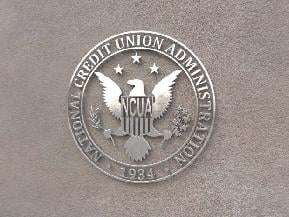LAS VEGAS – Credit unions can certainly do a lot more in joint marketing promotions and e-commerce with dealers if they are intent on building members and gaining new loan business, a top Houston dealer told CU executives here. Addressing the closing session of the annual Auto Lending Symposium sponsored by CU Direct Corp., W. Carroll Smith, a director of the National Auto Dealers Association, said he is impressed with those CUs which work hard at linking up with dealers on marketing campaigns and also help dealers in their efforts to capture special demographic “niches.” “Before you approach dealers, try to find out about the niche markets they’re trying to serve and I think you’ll be much more successful in forging relations,” advocated Smith, president of Monument Chevrolet in Pasadena, Texas and chairman of NADA’s Task Force on Finance Issues. Smith said his dealership generates about 25 new credit union members a month “and you can double that up to 50 for actual credit union transactions per month.” Discussing recent negative press against dealers and a new California law on car buyer rights, he said his dealership will soon be launching a “dealership pledge program” to inform consumers that rates “may be negotiable, that we may receive a portion of the finance charge or other compensation for providing financing; and that they don’t need to buy other products or services to obtain financing from us.” On the California law, he said dealers in that state “have been on the front lines of attacks on dealer financing for years” stating they face threats on two fronts -the Car Buyer’s Bill of Rights to be enacted soon by Gov. Arnold Schwarzenegger and the other a ballot initiative that would cap dealers’ finance income at $150. The compromise proposal awaiting the governor’s signature “would cap finance income at two or two-and-a-half percent, depending on the length of the loan and as many of you know, most finance companies already impose a cap, he said. Years ago, he said, CUs were different and “fairly exclusive.” But now, the customer has changed and “more and more are coming in with negative equity – they owe more on their trade-in than it’s worth,” he said. And still customers “seem to be ok with this.” On CU links with dealers, Smith said “I would personally like to see more indirect lending credit unions get online with e-contracting and ACH funding.” He said his Pasadena dealership “will be more likely to do business with credit unions that do so.” On marketing, Smith noted that an example of a good promotion is one that a local credit union, with whom he partners but did not identify, recently marketed the current employee purchase plan from GM through a member mailing. At the same time the CU placed a motor home/mobile loan office “on our property for the week.” The facility was a CU service office and included “an ATM on wheels.” The program “has been very successful for us in selling cars and for them in new loans” and he added “my point is this type of partnership promotion works very well.” “If you’re not part of a marketing partnership with dealers, find out how you can be,” urged Smith. “As I mentioned, consumers today are not very loyal – but they are demanding. They certainly expect – and even demand – that when they decide to buy they take it home with them right then.” So in most of these instances at the dealership, “we make a car deal and a financing deal at the same time,” he concluded. Another speaker at the CUDL conference, Maryann N. Keller, a Wall Street auto analyst, said car dealers complain that the major reason for stagnant car sales lately are “the declining credit quality of American consumers” and the fact that long term loans have resulted in the “large negative equity for many prospective car buyers.” She said Federal Reserve statistics show the average loan on a new car has dropped to $23,725 from $27,240 a year ago and that the average maturity has dropped from a peak of 63.4 months in October 2004 to 59.5 months in April. “Consumers seem to be doing what they have always done in the past – keep monthly payments in check at around $450 a month,” she said. Discussing automotive trends, she noted the decline in market share of U.S. auto makers below 60% “even though domestic companies still dominate the fleet market and sell a higher percentage of their production to their own employees and suppliers than their foreign rivals.” Despite Detroit’s troubles including tough negotiations with the UAW, Keller dismissed the notion that “the industry will face a financial crisis.” However, “it will be extremely tough for Detroit to reverse the slide in market share.” The New York analyst who operates her own firm, forecasts that “it is inevitable that Toyota will become the number one auto company in the world within three years.” And it is already the most profitable. -
 Search
Search














 Copyright © 2024 ALM Global, LLC. All Rights Reserved.
Copyright © 2024 ALM Global, LLC. All Rights Reserved.